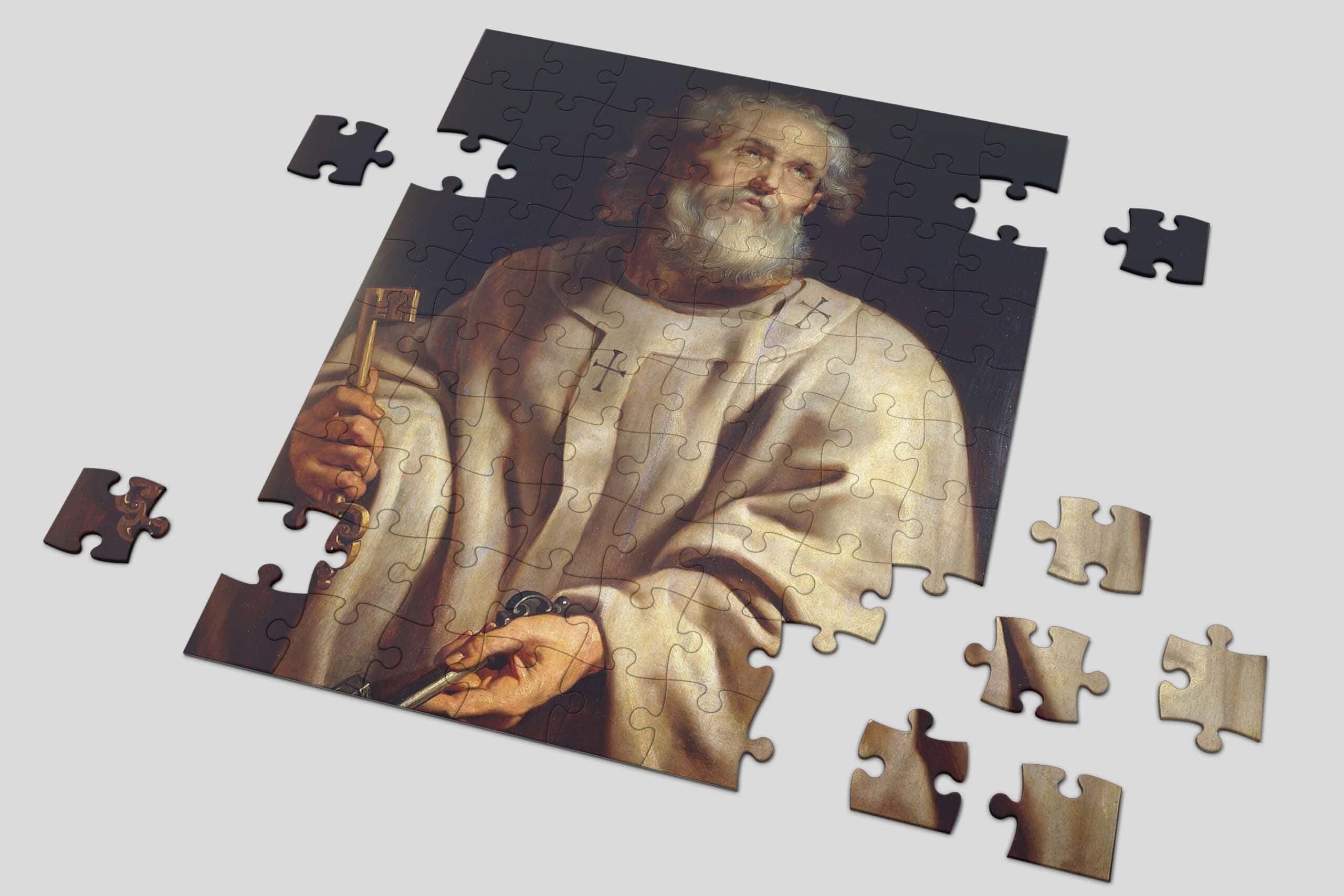Peter Paul Rubens's painting of "Saint Peter" typically portrays the apostle Peter, one of Jesus Christ's closest disciples and a prominent figure in Christian tradition. Rubens, known for his dynamic Baroque style, would likely depict Saint Peter with a strong and expressive presence, reflecting his leadership role among the apostles. Saint Peter is traditionally represented with attributes such as keys (symbolizing the keys to the Kingdom of Heaven entrusted to him by Jesus) and a fisherman's net (signifying his former occupation). Rubens's painting would likely emphasize Saint Peter's spiritual authority and the solemnity of his apostolic mission. The artwork serves to honor Saint Peter's pivotal role in the early Christian church, highlighting his faith, courage, and eventual martyrdom as significant aspects of his legacy.
Saint Peter
Artist:
Peter Paul Rubens
Peter Paul Rubens
Original price was: $39.00.$35.00Current price is: $35.00.
FREE SHIPPING
Reflection
Peter Paul Rubens's depiction of "Saint Peter" invites contemplation on the apostle's profound journey and significance within Christian tradition. As one of Jesus Christ's closest disciples, Saint Peter is portrayed with attributes that symbolize his leadership and spiritual authority, such as the keys to the Kingdom of Heaven and a fisherman's net. Rubens's dynamic Baroque style likely captures Saint Peter's robust presence and the weight of his apostolic mission. The painting prompts viewers to reflect on Saint Peter's transformation from a humble fisherman to a foundational figure in the early Christian church. His role as the "rock" upon which Christ built his church and his subsequent martyrdom underscore his unwavering faith and commitment to spreading the Gospel. Rubens's portrayal serves as a visual testament to Saint Peter's enduring legacy, inspiring contemplation on the virtues of courage, faith, and divine calling that resonate through his life and teachings.


